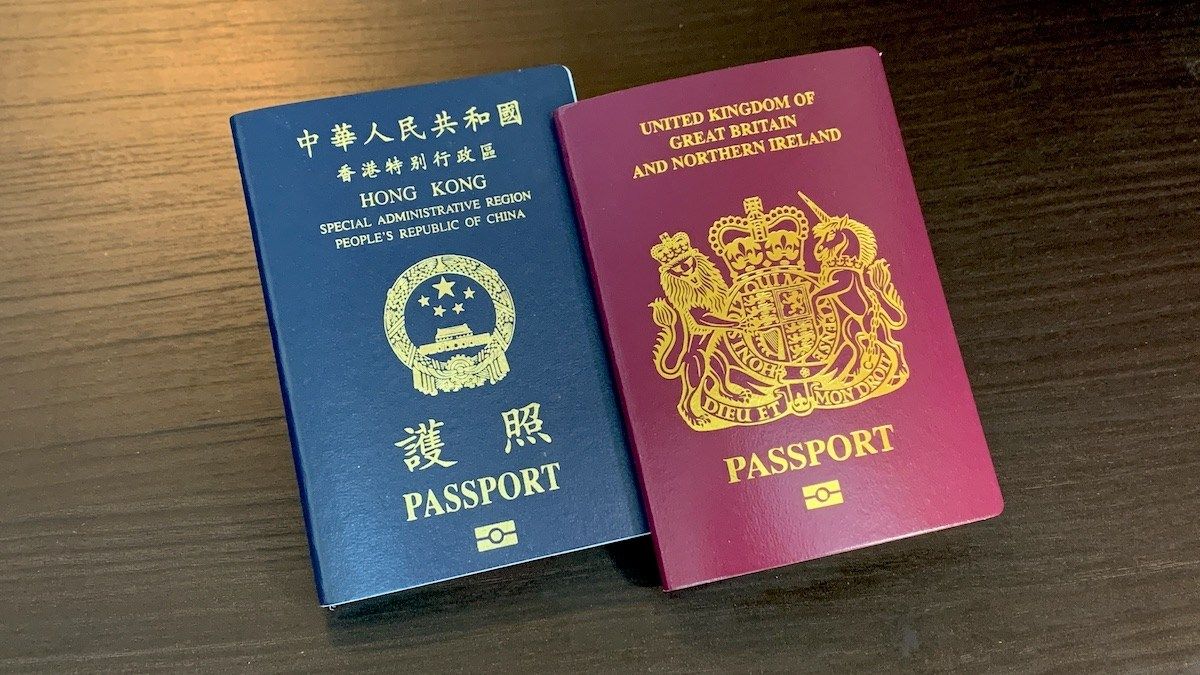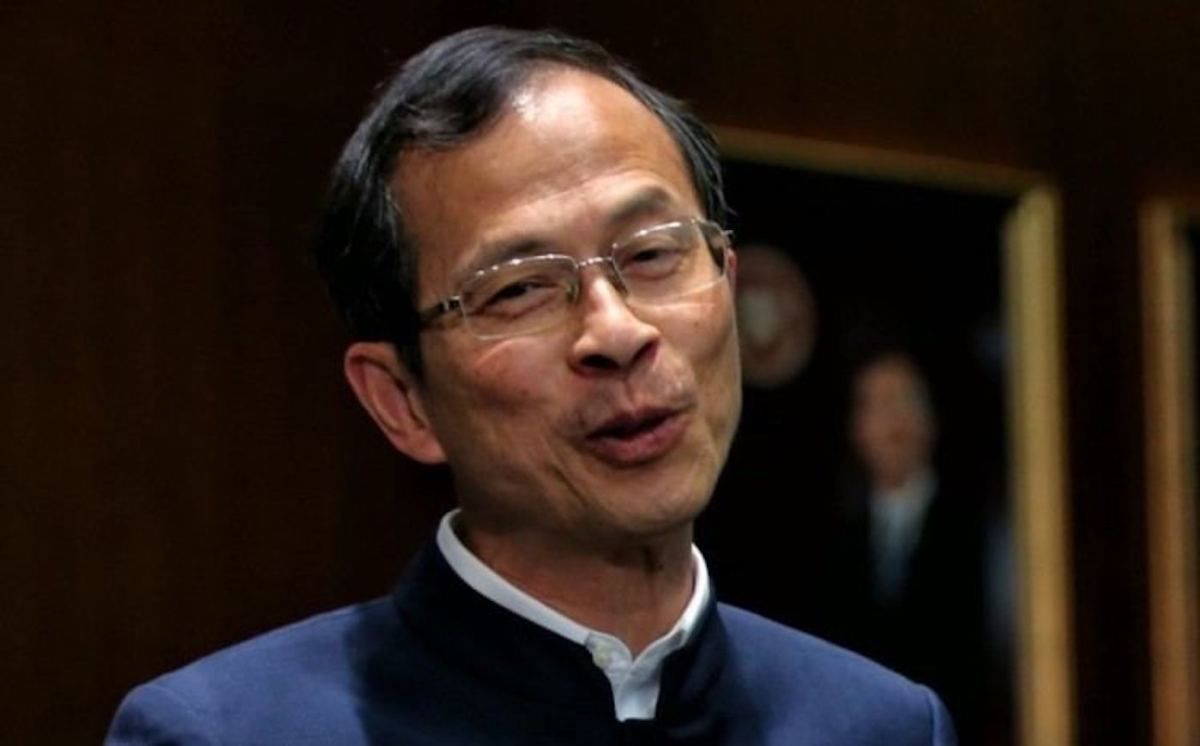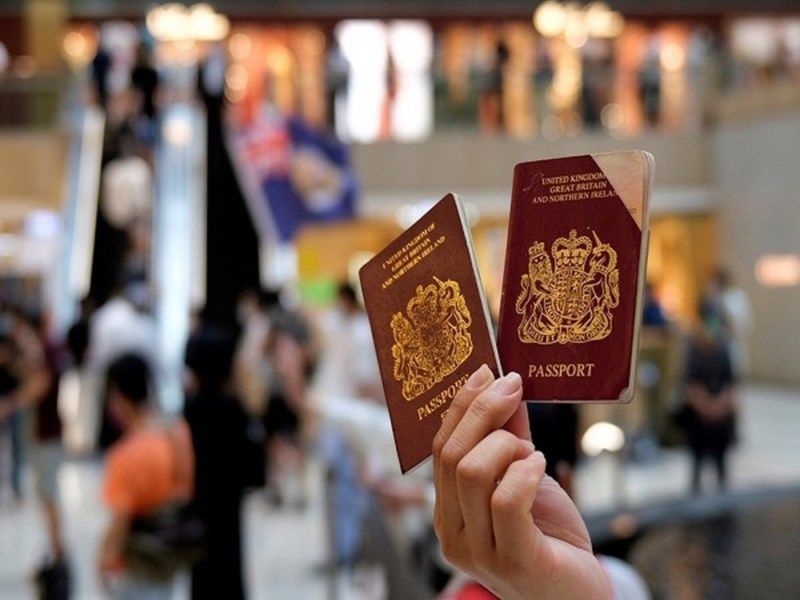
China set to squeeze UK’s visa offer for HK
China is expected to step up retaliation in March against the United Kingdom’s scheme to offer citizenship to millions of Hong Kong people.
Since last July, mainland academic and newspapers have suggested that Beijing will strip the Chinese citizenship and Hong Kong permanent residency of British National (Overseas) (BNO) passport holders who are given UK citizenship.
On January 29, the Chinese government said it would stop recognizing the BNO as a travel and identity document for Hong Kong people from January 31 and reserve the right to take further measures against the UK citizenship scheme.
The British government estimates that 5.4 million Hong Kong residents are eligible for the scheme, about 72% of its 7.5 million population. Applications opened on January 31.
The UK’s Home Office forecast that about 123,000 to 153,700 Hong Kong people would move to Britain in the first year under the BNO citizenship scheme. It said it expected 258,000 to 322,400 people – or more than one million people in an extreme case scenario – would join the scheme within five years.
Tian Feilong, an associate professor at Beijing’s Beihang University Law School and director of the Chinese Association of Hong Kong and Macau Studies, said in an interview with TVB on Wednesday that the standing committee would interpret China’s Nationality Law for the second time in March if necessary.
“If the number of BNO visa applicants reaches 20,000 to 30,000 this month, I think it touches an alarming level,” Tian said.
 British National (Overseas) and Hong Kong passports.
British National (Overseas) and Hong Kong passports.
After BNO status holders are granted British citizenship, their permanent residency, voting rights and social benefits in Hong Kong should be stripped, he said.
The Hong Kong government would have to amend its local election and social benefit rules after the reinterpretation of the Nationality Law, according to Tian.
Tam Yiu-chung, the sole representative from Hong Kong on the standing committee, said Friday that he had not yet seen any agenda about Hong Kong issues for the coming meeting.
Tam said the first round of retaliation announced by Beijing on January 29 would not have a big impact on Hong Kong people because it did not touch on the issues of Chinese nationality and Hong Kong permanent residency.
In May 1996, the standing committee gave an explanation about China’s Nationality Law’s implementation in Hong Kong. It said from July 1, 1997, Hong Kong people were able to keep using British Dependent Territories Citizens or BNO passports as travel documents, but they would not be entitled to British consular protection in Hong Kong and mainland China.
It is widely believed that by reinterpreting the Nationality Law, Beijing can easily strip the Chinese nationality of those who are granted British citizenship under the BNO citizenship scheme.
However, it’s more complicated to strip a Hong Kong person’s permanent residency as such a move may violate Article 24 of the Basic Law, which states clearly the definition of the city’s permanent residents.
Last month, pro-Beijing former Legislative Council president Jasper Tsang Yok-sing said on his YouTube channel that stripping a Hong Kong person’s Chinese nationality and Hong Kong permanent residency was different.
Tsang said Hong Kong people who hold foreign passports should not be too worried about being stripped of their permanent residency, which was clearly defined in Article 24 of the Basic Law.
 Jasper Tsang Yok-sing in a file photo.
Jasper Tsang Yok-sing in a file photo.
Tian suggested last year that the NPC standing committee should interpret Article 24 of the Basic Law. He said after the interpretation, BNO status holders given British citizenship would lose their rights to vote and to stand for election. These rights are stated in Article 26 of the Basic Law.
Many Hong Kong netizens have pointed out that the Hong Kong government won’t be able to distinguish whether a Hong Kong person is given British citizenship under the BNO scheme or other schemes, which include the British Nationality Selection Scheme launched in 1990 for 50,000 Hong Kong families.
However, Lau Siu-kai, vice-president of the Chinese Association of Hong Kong and Macau Studies, said Hong Kong residents would be required to declare to the government if they were given British citizenship under the BNO scheme.
Lau said people given British citizenship under the BNO scheme would enjoy fewer job opportunities in Hong Kong because they would face more challenges when applying for a visa to enter mainland China. He said these people would then have to return to the United Kingdom as “second-class citizens” due to their gloomy prospects in Hong Kong.
Ethnic minorities
While these “punishments” do not seem to be immediate for those who have decided to leave, Beijing’s move to stop recognizing the BNO as a travel and identity document has hit hundreds of innocent people.
Mohan Chugani, the former president of the India Association Hong Kong, said some non-Chinese permanent residents in Hong Kong, who only hold BNO passports, were affected.
Chugani said minorities from India, Pakistan and Nepal failed to secure Chinese nationality and could not apply for Hong Kong SAR passports and Mainland Travel Permits. He said these people used to apply for China visas with their BNO passports but they could not do so now.
 A pro-democracy demonstrator holds British National Overseas (BNO)
passports during a protest against new national security legislation in
Hong Kong, China June 1, 2020.
A pro-democracy demonstrator holds British National Overseas (BNO)
passports during a protest against new national security legislation in
Hong Kong, China June 1, 2020.
The Hong Kong government said on January 29 that the “very few” non-Chinese Hong Kong permanent residents holding BNO passports but no other valid travel document may apply to the Immigration Department for Document of Identity for Visa Purposes for international travel.
A staff member at China Travel Service (Hong Kong), an agency that helps people apply for Mainland Travel Permits or China visas, said applicants should contact the visa department of the Office of the Commissioner of China’s Ministry of Foreign Affairs.
There were about 36,000 Indians, 18,000 Pakistanis and 25,000 Nepals in Hong Kong, according to the last census in 2016. Many of these people hold foreign or Hong Kong SAR passports.
According to Immigration Department data, 14,645 non-Chinese people applied for Chinese nationality in Hong Kong between 2009 and 2018. Of these, 75% succeeded. The rest were rejected or withdrawn.
Philip Khan, a Hong Kong-based Pakistani businessman, estimated that about 1% of all non-Chinese in Hong Kong held only a BNO passport. Khan said some of them might move to the UK.










